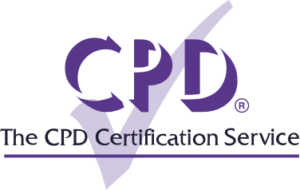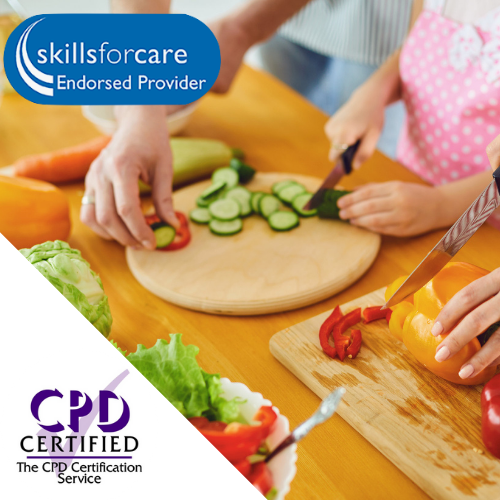In this Sweet Shop Owners CPD Guide
Why do Sweet Shop Owners need CPD?

A sweet shop is a shop that specialises in selling sweets, chocolates and other sweet treats. They serve customers who may have a sweet tooth and enjoy purchasing a variety of sweets, chocolates and other confectionery items. A sweet shop owner’s responsibility to their customers is to provide quality products, excellent customer service, fair prices, and a safe environment for their customers to shop in. Additionally, they should adhere to food safety regulations and provide accurate information about their products, including any potential allergens or ingredients.
Sweet shop owners must comply with various laws and regulations, including food safety and hygiene standards, labelling requirements and advertising rules. They must also ensure that their products comply with UK laws on food additives, allergens and other substances. Additionally, they must register their business with the local council and obtain any necessary licences or permits. It is recommended that sweet shop owners seek legal advice to ensure they are meeting all legal requirements, as well as complete continuing professional development to stay abreast of industry regulations.
What our customers have to say
Dan King
Mobilisation, Training & Performance Manager

Sophie Aiken
HR Manager

Harriet Lee
Retail Recruitment Manager

What CPD courses do Sweet Shop Owners need?
A sweet shop owner is a business owner, so there are many CPD courses that will help you to run your business.
Some popular courses suited to a sweet shop owner include:
Allergen Awareness – this course is designed to give the necessary knowledge of allergies and intolerances for food handlers. This will help you to reduce contamination and keep customers safe from any allergens they are allergic to.
Workplace First Aid – in this course you will learn how to treat injuries that may occur in the workplace, as well as some of the common illnesses that workers may experience, what the signs and symptoms of each are and how to treat them. Our First Aid training also covers how you should keep records of any incidents that take place in the workplace.
Management – this course will cover the best ways to solve problems in the workplace, manage and deal with conflict that may occur, help keep staff motivated in their jobs and how to plan and organise for a meeting. We will also look at managing change in the workplace and developing employees to get the best from a team.
Food Safety and Hygiene for Retail – working in retail as a food handler requires a strong knowledge of food safety and hygiene which is covered in detail on this course. It is a legal requirement for anyone who handles food to ensure they have a working understanding of food hygiene. This course meets this requirement and covers personal hygiene, cleaning of premises, food contamination, hazards and the safe preparation of food.
Food Labelling Regulations Training – any business or caterer selling pre-packed food and drink products directly to the public must provide the correct food information and properly label their products as per the requirements of the food labelling regulations. Food labelling regulations ensure food labelling is regulated to protect consumers from misleading information. You will learn about the labelling requirements for pre-packaged and loose food, including the mandatory particulars that must legally be on packaging or labels, and you will also consider the rules for labelling presentation.
Equality and Diversity – this course helps make sure that best practice regarding equality and diversity is carried out in the working environment. Equality and diversity training helps to reduce the occurrence of discrimination and to make sure everyone from any walk of life is treated equally and fairly.
Disability Awareness – this course will explore the different disabilities that affect people, and how these can affect their working life too. The course will help with acceptance and inclusion and, in turn, will help to change attitudes towards disabilities in the workplace.
Customer Service in Retail – this course will strengthen existing customer service skills. It will equip you with the skills and knowledge that you need to provide excellent customer service but also with information for handling complaints.
Download our CPD trackerA guide to CPD for Sweet Shop Owners
Continuing professional development (CPD) refers to the process of enhancing an individual’s skills and knowledge through ongoing education and training. For a sweet shop owner, CPD can help them stay up to date with industry trends, improve their business management skills, and learn new techniques for creating and marketing their products. This can ultimately lead to increased profitability and success for their business. There are many ways that a sweet shop owner can do CPD training to increase their knowledge and skills in the industry, one of which is by completing CPD courses.
CPD certificates
A CPD certificate is a document that verifies the completion of a professional development activity, such as a course or training programme. It helps individuals enhance their skills and knowledge in their field. Once you complete your CPD course with us, you will have immediate access to it for download.
It is important to keep a CPD certificate safe because it serves as evidence of your professional development and training. It can be used to demonstrate your achievements, skills and knowledge to employers, regulatory bodies, or other relevant parties. Losing or damaging your CPD certificate may cause difficulties in proving your professional development and may hinder your career advancement opportunities. When you complete a CPD course with us, we advise you to download and save your certificate on your computer and in cloud storage.
Logging CPD hours
Logging CPD hours means keeping track of the time spent on activities that help to maintain and improve professional knowledge and skills. It is a requirement for many professional bodies and industries to ensure that professionals are keeping up to date with the latest developments in their field. You can log the time that you spend on your CPD course as well as time spent on any other CPD training activity to stay up to date with your learning requirements.
Keeping CPD evidence
CPD evidence can include certificates of attendance, pieces of reading, feedback from customers, CPD certificates, and records of personal development goals and progress. People keep CPD evidence as a record of their learning and development activities. This helps them track their progress, identify areas where they need further development, and demonstrate their professional competence to employers, clients and regulatory bodies. Additionally, some professions require their members to maintain a certain amount of CPD to ensure that they are up to date with the latest developments in their field. Saving an electronic or hard copy of your CPD training throughout the year can help you stay organised with your CPD.
Renewing CPD certificates
Your CPD certificates signify your knowledge and skills of the subject area. However, in most industries there are legislative updates and new trends that are constantly updated as society progresses. To ensure that you are always up to date with the latest developments, you should renew your CPD certificate every two years. We can send reminder emails when your time frame is nearing, and you can simply enrol on the course again to complete a refresher, or complete the higher level of your course to improve your skills.
























